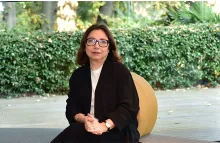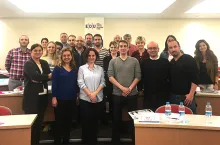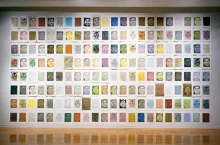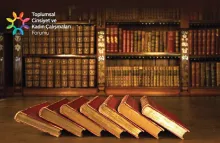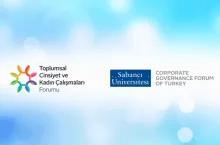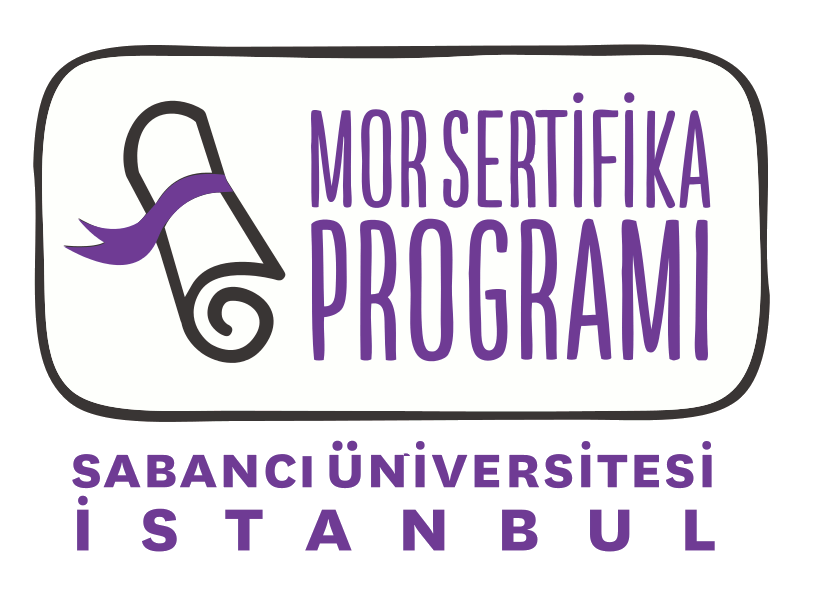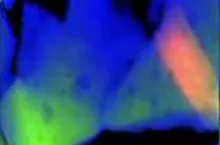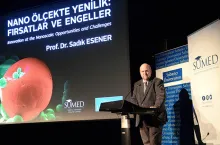Sabancı Business School is accepting applications for the 2016-2017 academic year MBA, Executive MBA (EMBA), Masters in Finance (MIF), Business Analytics (MSBA) and Management PhD programs. Information regarding these programs can be obtained from the web site. Additionally, various scholarships are available for MBA, MiF, MSBA and PhD programs.
Applications for the MBA Program:
The MBA Program is open to all candidates with an undergraduate degree from an accredited university.
MBA Programs Required Documents:
1. Completed online application form ,
2. Transcript,
3. The following Graduate Program Entrance Exam scores,
4. ALES or equivalent test scores are not required
5. Any of the following English Proficiency exam result,
| TOEFL | IELTS | UDS, KPDS, YDS, e-YDS | The validity period for these scores are as follow: KPDS, UDS, e-YDS and YDS 3 years, other exams 2 years. |
PBT | CBT | IBT |
MBA | 557 | 220 | 83 | 6,5 | 69 |
6. 2 Reference letters,
7. Detailed and updated Resume (CV),
7. Statement of Purpose (in English).
8. A copy of undergraduate diploma. Note: If you are in your last semester of your undergraduate studies and do not have your diploma yet, you need to provide a graduation certificate before you can be admitted to the degree program.
9. A photograph
10. Signed online application affidavit
Application Deadline for MBA:
Early Applications : April 15, 2016
Regular&Scholarship Applications :June 10, 2016. We strongly urge all candidates to submit their applications by this date.
Applications : July 1, 2016
Admission Process: After an initial screening, eligible candidates are to be interviewed. Interview results and acceptance decisions will be mailed to the candidate.
For more information: Burcu Albayrak (0216) 483 96 72 or balbayrak@sabanciuniv.edu
Application Deadline for MBA :
(for Young Professionals)
Early Applications : April 15, 2016
Applications : July 1, 2016
Admission Process: After an initial screening, eligible candidates are to be interviewed. Interview results and acceptance decisions will be mailed to the candidate. Applicants may also attend the Sabanci University English proficiency exam that will be held on March 23, April 20, May 21, June 17, July 16 2016. All applicants who plan to attend SU exams should complete their online application before the exam dates. The spoken English level of the applicant will be evaluated in the interview.
For more information: Neyir Özdemir (0216) 483 9743 or nozdemir@sabanciuniv.edu
Executive MBA Required Documents
1. Completed online application form,
2. Graduation certificate/ diploma from an undergraduate institution
3. Transcripts for undergraduate and, if applicable, graduate studies
4. Any of the following English Proficiency exam result ,
| TOEFL | IELTS | UDS, KPDS YDS, e-YDS | The validity period for these scores are as follow : KPDS, UDS, YDS and e-YDS 3 years, other exams 2 years. |
PBT | CBT | IBT |
EMBA | 557 | 220 | 83 | 6,5 | 69 |
Applicants may also attend the Sabanci University English proficiency exam that will be held on March 23, April 20, May 21, June 17, July 16 2016. All applicants who plan to attend SU exams should complete their online application before the exam dates.
The spoken English level of the applicant will be evaluated in the interview.
5. Two letters of recommendation (Please use SU Recommendation letter form)
6. Detailed resume including specific information on work experience (CV)
7. Statement of Purpose (in English).
ALES or equivalent test scores are not required for the applications to Executive MBA program.
Application Deadline for Executive MBA:
Early Applications: April 15, 2016
Latest Applications: July 1, 2016
Admission Process: After an initial screening, eligible candidates are to be interviewed. Interview results and acceptance decisions will be mailed to the candidate.
For more information: Neyir Özdemir (0216) 483 9743 or nozdemir@sabanciuniv.edu
Application for the Masters in Finance (MiF) Program:
All candidates who have a 4-year undergraduate degree may apply to the Program.
MiF Required Documents:
1. Completed online application form,
2. Transcript,
3. Any of the following Graduate Program Entrance Exam scores,
a. ALES A minimum score of 55 (Equal Weight),
b. GMAT or,
c. GRE
4. Any of the following English Proficiency exam result,
| TOEFL | IELTS | UDS, KPDS YDS, e-YDS | The validity period for these scores are as follow : KPDS, YDS, e-YDS and UDS 3 years, other exams 2 years. |
PBT | CBT | IBT |
MiF | 557 | 220 | 83 | 6,5 | 69 |
5. 2 Reference letters,
6. Detailed and updated Resume (CV),
7. Statement of Purpose (in English).
8. A copy of undergraduate diploma. Note: If you are in your last semester of your undergraduate studies and do not have your diploma yet, you need to provide a graduation certificate before you can be admitted to the degree program.
9. A photograph
10. Signed online application affidavit
Application Deadline for MiF:
Early Applications : March 4, 2016
Regular Applications : June 10, 2016
Applications : July 1, 2016
Admission Process: After an initial screening of the documents, eligible candidates will be interviewed. Interview results and acceptance decisions will be sent by mail.
For more information: Burcu Albayrak, (0216) 483 9672 or balbayrak@sabanciuniv.edu
Application for the Masters in Business Analytics (MSc. in BA) Program:
All candidates who have a 4-year undergraduate degree may apply to the Program.
MSc.in Business Analytics Required Documents:
1. Completed online application form,
2. Transcript,
3. Any of the following Graduate Program Entrance Exam scores,
a. ALES A minimum score of 55 (Equal Weight),
b. GMAT: 600,
c. GRE : 150
4. Any of the following English Proficiency exam result,
| TOEFL | IELTS | UDS, KPDS, YDS, e-YDS | The validity period for these scores are as follow : KPDS, YDS, e-YDS and UDS 3 years, other exams 2 years. |
PBT | CBT | IBT |
MSc.in BA | 557 | 220 | 83 | 6,5 | 69 |
5. 2 Reference letters,
6. Detailed and updated Resume (CV),
7. Statement of Purpose (in English).
8. A copy of undergraduate diploma. Note: If you are in your last semester of your undergraduate studies and do not have your diploma yet, you need to provide a graduation certificate before you can be admitted to the degree program.
9. A photograph
10. Signed online application affidavit
Application Deadline for MSc.in BA:
Regular Applications : June 10, 2016
Applications : July 1, 2016
Admission Process: After an initial screening of the documents, eligible candidates will be interviewed. Interview results and acceptance decisions will be sent by mail.
For more information: Eda Ermiş, (0216) 483 9671 or edaermis@sabanciuniv.edu
Application for the PhD Program:
The PhD program in Management is open to candidates with a background in business, economics, engineering, social or natural sciences.
PhD Required Documents:
1. Completed online application form,
2. Transcript,
3. Result for Graduate Program Entrance Exam:
Turkish citizens are required to submit GMAT and GRE scores as well as ALES scores. Non-Turkish applicants are only required to submit GMAT, GRE or GAT scores.
GMAT : Min. score 600
GRE : Quantitative: min. score 730 (Scores on the Prior Scale), 157(Scores on the Current Scale),
ALES: Equal Weight : Candidates applying for the PhD Programs with a MA degree min. score 75, Candidates applying for the PhD Programs with a BA degree min.score 80
GAT : Accumulative Percentile : %60 (for international student)
4. 2 Reference letters
5.a) “English Proficiency Certificate” for PhD Programs: Photocopies of the documents mentioned below are accepted for application; however originals will be requested upon registration in the case of admission.
International PhD applicants must submit a proficiency exam result in one of the following languages, excluding the native language of the applicant: English, German, French, Italian, Spanish, Russian, Arabic, Chinese, Japanese or Persian. The applicant is required to achieve a minimum of 83 points in the national foreign language examination (YDS) offered by the Turkish Council of Higher Education (YÖK) or the equivalent in an international language proficiency exam recognized by ÖSYM Board. The minimum scores required are given in the table below for Foreign Language Proficiency Certificates for proficiency in English.
| TOEFL | KPDS, ÜDS | YDS, e-YDS |
IBT |
PhD | 88 | 73 | 73 |
After the test date, TOEFL scores are valid for two years and YDS, KPDS and ÜDS scores are valid for three years.
Applicants who provide a “Foreign Language Proficiency Certificate” in one of the languages listed above other than English are also required to fulfill the English proficiency criteria stated below at 5.b)
5-b) As the language of instruction at Sabancı University is English, the applicant is required to submit the score of one of the English proficiency assessment exams. Recognized exams, the minimum score required and period of validity are given in the table below. Photocopies of the documents mentioned below are accepted for application; however originals will be requested upon registration in the case of admission.
| TOEFL IBT | KPDS, ÜDS | YDS, e-YDS |
PhD | 88 | 73 | 73 |
After the test date, TOEFL scores are valid for two years, YDS, KPDS and ÜDS scores are valid for three years.
Applicants who do not submit a valid English Proficiency Exam score, if they are accepted to a program (fulfilling all other requirements) can only be admitted to graduate study on the condition of obtaining a satisfactory grade in Sabancı University’s own English Language Assessment Exam (ELAE). Those candidates who fail to attend or get a satisfactory score in the exam are obliged to attend and successfully complete a full course of English Language Preparation in order to continue with graduate courses. Failure to complete this course successfully will result in termination of enrollment in a graduate program at Sabancı University.
Graduates of Sabancı University are exempt from submitting an English Proficiency Exam score provided that they apply within two years of their graduation.
6. Detailed and updated resume (CV),
7. Statement of Purpose (in English).
8. Candidates applying for the PhD Programs with a BA degree must hold a 3.00/4.00 GPA. The candidates graduated from institutions which apply a scale other than “X out of 4.00” system must provide a conversion table or an official letter of evidence from their institutions.
Application Deadline for PhD: May 30, 2016
For more information: Eda Ermiş (0216) 483 9671 or phdman@sabanciuniv.edu
Sabancı Üniversitesi
Öğrenci Kaynakları Birimi,
Orta Mahalle, Üniversite Cd. No:27, Tuzla, 34956 Istanbul
0 (216) 483 90 93
0 (216) 483 90 73
studentinfo@sabanciuniv.edu


